Supreme Court Chief Justice John Roberts praised Donald Trump at a secret meeting with judges as he sought to address concerns that the president could spark a constitutional crisis.
Roberts made the comments during high-level talks on March 11 at the Judicial Conference of the United State, a 27-member national policymaking body for the federal courts, according to a memorandum obtained by The Federalist, a conservative online publication.
Federal Judge James Boasberg—who blocked Trump’s efforts to deport Venezuelan nationals using the Alien Enemies Act—told Roberts that he and his D.C colleagues were concerned “that the administration would disregard rulings of federal courts leading to a constitutional crisis.”
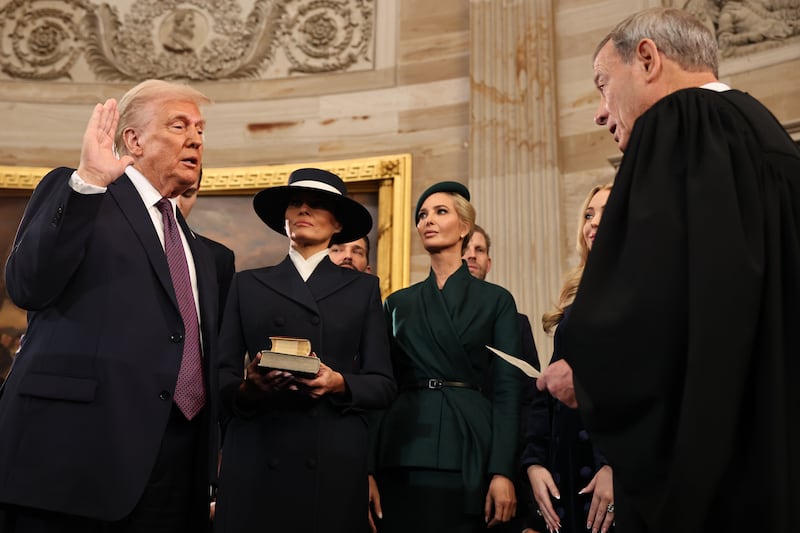
But Roberts pushed back on this idea, according to the memorandum, and spoke of Trump in complimentary terms.
“Chief Justice Roberts expressed hope that would not happen and in turn no constitutional crisis would materialize,” the memo noted, based on an attendee’s summary of the meeting, which was held in Washington D.C.
The memo added then said that Roberts had also noted that “his interactions with the President have been civil and respectful, such as the President thanking him at the state of the union address for administering the oath.”
Trump had been photographed shaking hands with Roberts at his joint address to the House and the Senate in February, an event held instead of a State of the Union Address when a president is newly inaugurated.
The memo provided rare insight into Chief Justice Roberts’ thinking amid escalating tensions between the Trump administration and the federal courts over the constitutionality of certain policies.
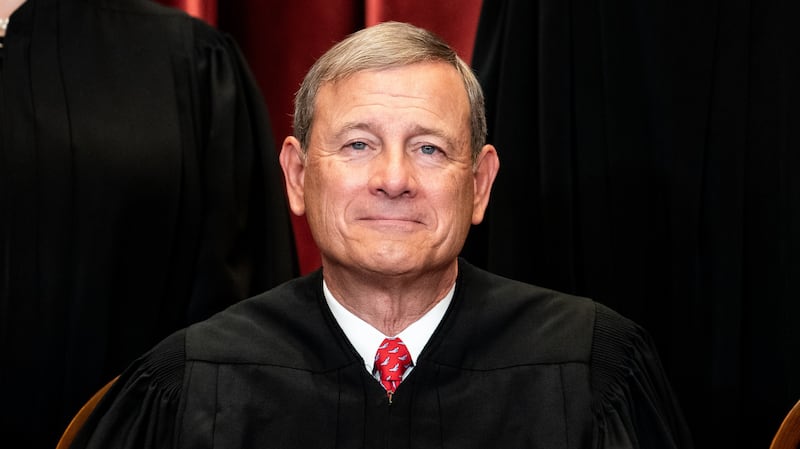
Roberts, a conservative who was appointed by George W. Bush, has consistently sought to preserve the image of the court as a non-partisan body, especially during a time of heightened polarization.
However, in recent months, the conservative-dominated Supreme Court has given Trump a series of legal victories using “shadow dockets”—orders and summary decisions that often offer little to no explanation or public deliberation.
This has allowed Roberts and other majority members on the bench to effectively be shielded from scrutiny about their decisions.
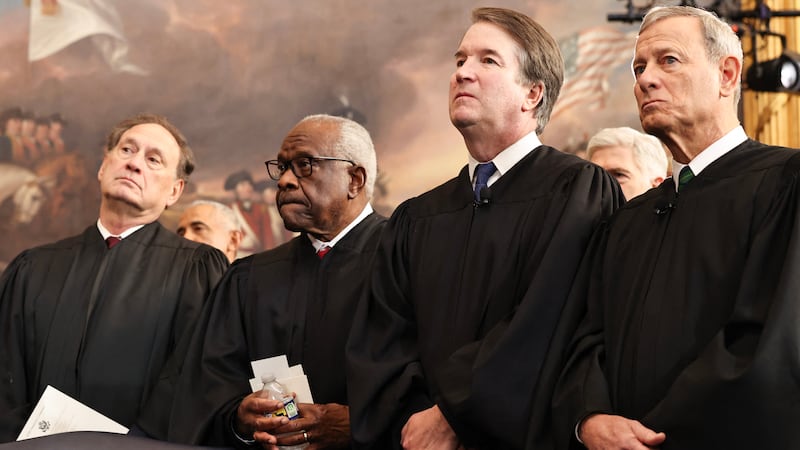
One of its most recent decisions took place on Monday when Roberts and the conservative majority paved the way for Trump to conduct mass sackings at the Department of Education but did not provide their reasoning.
The court has also used shadow or emergency dockets to allow the administration to discharge transgender troops, shift power from Congress to the president, and end protections for migrants from war-torn countries.
It has, however, been more transparent on other rulings favoring Trump, such as last month’s decision to limit the ability of federal lower courts to temporarily pause Trump’s executive orders using nationwide injunctions.
Trump was thrilled by the 6-3 decision, which was written by Amy Coney Barrett, who he had nominated to the bench in his first term, alongside Brett Kavanaugh and Neil Gorsuch.
Two of the other conservative justices—Samuel Alito and Clarence Thomas—have previously come under fire for bias: Alito for having an upside-down American flag at his Virginia home (an alleged symbol of the “stop the steal” movement); and Thomas for his wife’s past efforts to overturn the 2020 election results.
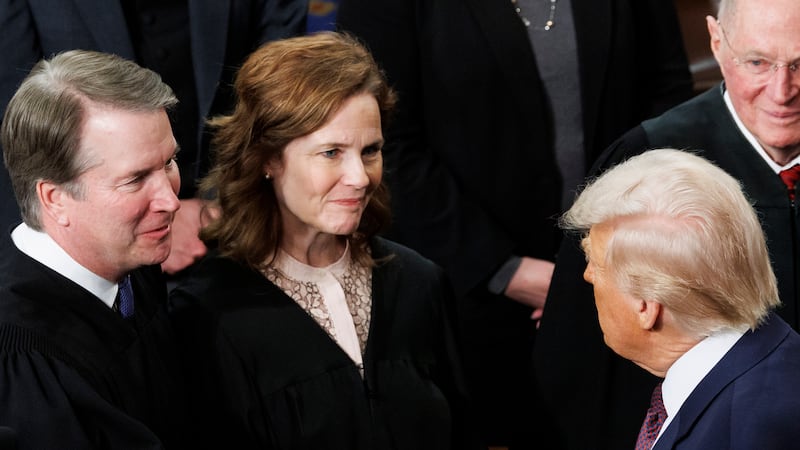
“I’m grateful to the Supreme Court for stepping in and solving this very, very big and complex problem, and they’ve made it very simple,” Trump said last month after the court ruled in his favor.
He added, “I want to thank Justice Barrett, who wrote the opinion brilliantly, as well as Chief Justice Roberts and Justices Alito, Gorsuch, Kavanaugh and Thomas. Great people.”
Meanwhile, Boasberg has been one of such federal judges who have angered Trump the most. As the chief judge of the U.S. District Court for the District of Columbia, he has issued orders aimed at halting some of Trump’s deportations to ensure due process for people being kicked out of the country.
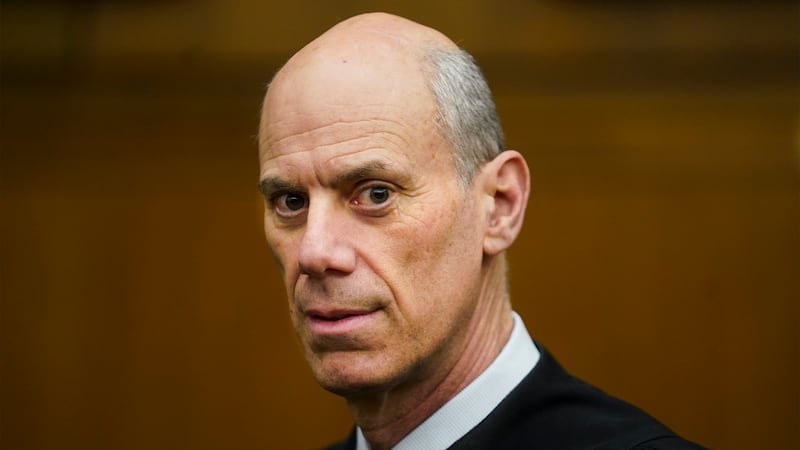
Boasberg also handled the Signalgate case, in which The Atlantic’s Jeff Goldberg was somehow added to a private Signal chat in which top members of the cabinet, including vice-president J.D Vance and Defense Secretary Pete Hegseth, discussed a sensitive military operations.
On the heels of Boasberg’s orders, Trump called for the judge to be impeached, calling him a “troublemaker and agitator.”
The push for impeachment didn’t eventuate, and resulted in a rare rebuke of Trump from Roberts.
“For more than two centuries, it has been established that impeachment is not an appropriate response to disagreement concerning a judicial decision,” the chief justice said in a rare statement. “The normal appellate review process exists for that purpose.”








